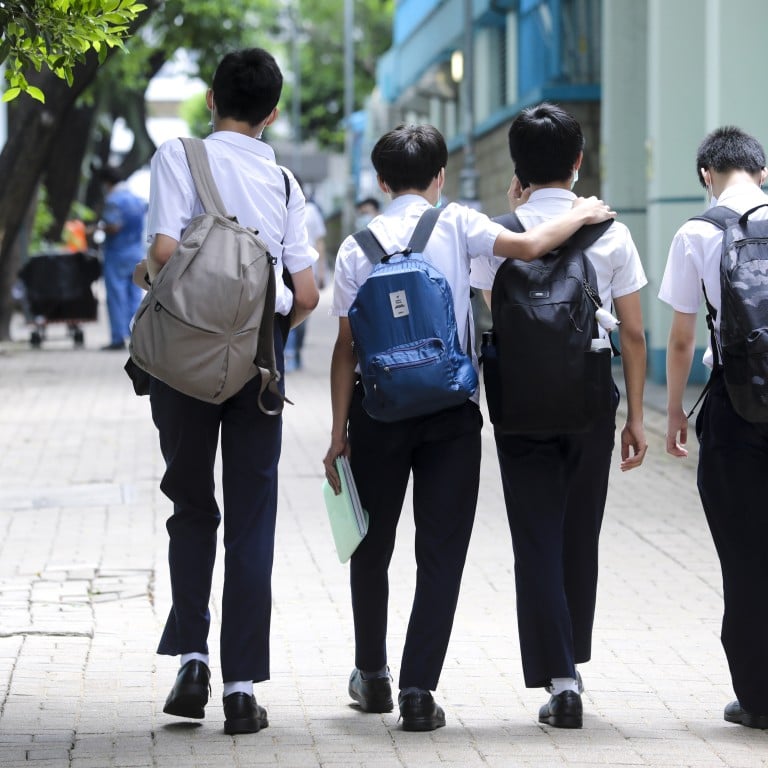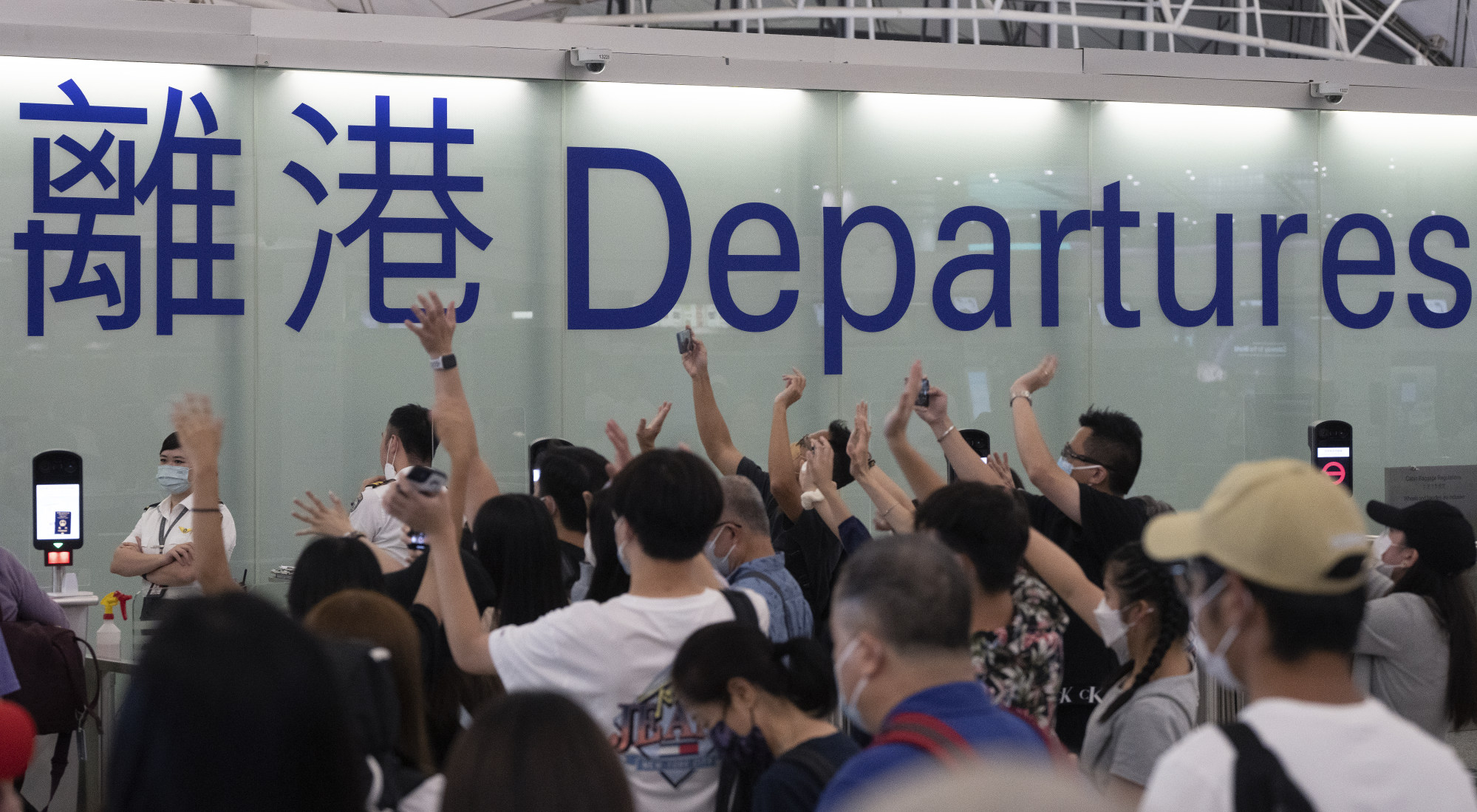
Hong Kong schools lost 4,600 pupils in last academic year, a nearly 90% drop compared with 2021-22 as emigration wave subsided
- Two school council heads say pupil withdrawals have been ‘dying down’, with only a handful leaving in the past 1½ years
- Post compares enrolment figures of pupils from Kindergarten One to Form Five in September 2022 with those from Kindergarten Two to Form Six at start of this year
About 4,600 pupils left Hong Kong’s schools in the last academic year, a decrease of nearly 90 per cent compared with the previous one as an emigration wave subsided, according to official figures.
Two school council heads said pupil withdrawals had been “dying down”, with only a handful leaving in the past 1½ years.
In response to lawmakers’ queries, the Education Bureau on Thursday released the enrolment figures of all government, aided and international schools as well as those under the direct subsidy scheme as of September 2023.
The Post compared the enrolment figures of pupils from Kindergarten One to Form Five in September 2022 with those from Kindergarten Two to Form Six at the start of this academic year to determine the change in population.
The difference of the pupil enrolment between two years was about 4,600, or 0.5 per cent of the total excluding the Form Six students in 2022.
That was about an 80 per cent decrease when compared with the 33,600 pupils who withdrew in 2021-22 and 30,500 in 2020-21.
Following the implementation of the Beijing-imposed national security law in June 2020, several Western countries – including Britain, Canada and Australia – began offering new visa schemes to Hong Kong residents.
The UK government had approved 191,158 British National (Overseas) Visas for Hongkongers as of December 2023. They will be allowed to work, study and live in Britain, and are eligible to apply for citizenship after six years.
One of the schools is Maryknoll Convent School (Secondary Section), a prestigious girls’ school in Kowloon City. It said its pupils’ early exit rate dropped to zero in the last school year, against 5.1 per cent in the previous one.
‘Hong Kong primary schools should overhaul exam formats to reduce student stress’
Polly Chan Suk-yee, head of Yaumati Catholic Primary School (Hoi Wang Road) and vice-chairwoman of the Hong Kong Aided Primary School Heads Association, said the pupil withdrawals had become “sporadic”.
Chan said her school received eight to 10 within a short period of time early in the emigration wave, but now there were fewer than 10 applications in a year.
“The situation is kind of expected. As the emigration will not persist, most of them planning to leave have already left and now we only received a handful of applications of student withdrawals,” she said.

So Ping-fai, chairman of the Subsidised Primary Schools Council, agreed the wave of pupils quitting had been subsiding.
“But student withdrawals do not drop to zero. The current situation is sporadic,” the primary school head said.
Meanwhile, the statistics also showed the total number of teachers quitting kindergartens, primary and secondary schools stood at about 4,500 in the last school year, dropping by 14 per cent when compared with the previous year.
Bringing in mainland Chinese pupils ‘not an option’ for Hong Kong public schools
The bureau said the reasons for teacher wastage included pursuing further studies, changing to other types of schools, taking up employment outside the teaching profession, and leaving due to other personal reasons.
“According to our observation, the operation of schools is smooth in general,” the bureau said. “With the declining school-age population, the demand for teachers would decrease correspondingly.”
The bureau also revealed in the reply to the lawmakers that it and the Curriculum Development Institute (CDI) would step up the promotion of patriotic education as it would be integrated into the education system.
“All sections within CDI will need to continue to stay committed in implementing various measures, with a view to helping students effectively learn national security, Chinese culture, as well as the history, geography, and the development and achievements of our country,” it said.
It added CDI would organise programmes for teachers, such as seminars on national security education and provide materials on national affairs and the country’s history to primary and secondary schools regularly to support them in implementing national education.

